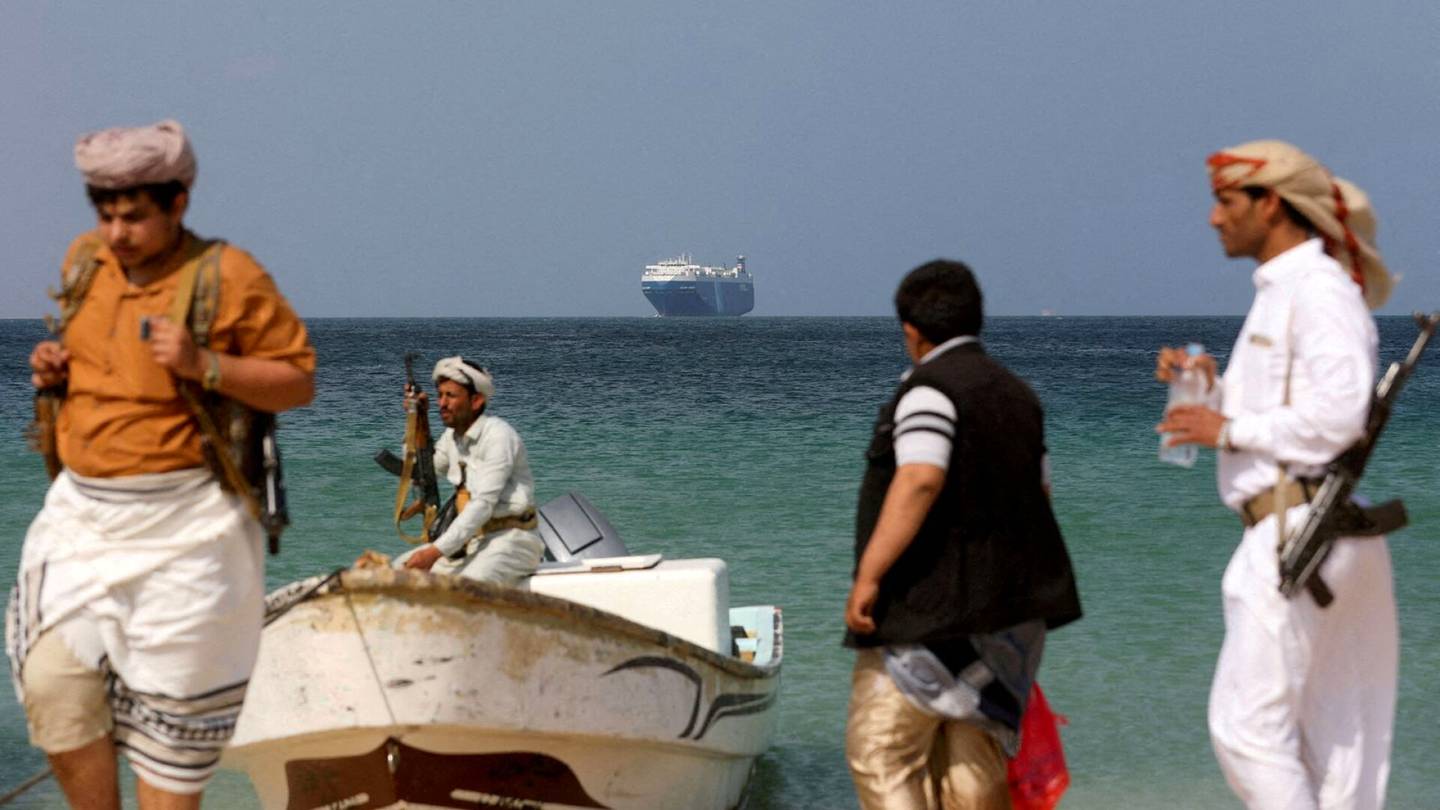
EU countries want to secure freight traffic to Asia, but are afraid of irritating Iran.
Brussels
of Yemen missile strikes by the Houthi rebels have already disrupted European freight traffic in the Red Sea for two months, but the EU countries are still pondering how they should respond to the situation. On Tuesday, the EU ambassadors of the member states will have the first discussion about starting a possible sea operation.
The security of the Red Sea is an important issue for the EU, as it is one of the most important trade routes between Europe and Asia. Companies from different parts of Europe have already reported production disruptions and component shortages due to the Huthi attacks.
EU Commissioner for Foreign Affairs Josep Borrell last week called on the Houthi rebels to stop the attacks immediately.
“Safeguarding freedom of navigation in the Red Sea is vital for world trade and regional security. As UN Security Council Resolution 2722 states, states have the right to defend their ships from these attacks according to international law,” Borrell stated in his statement.
Borrell has proposed the establishment of a new EU mission in the Red Sea. The details of the proposal are not public, but there are several options, and the goal is that the operation could start by the end of February.
in EU countries there are concerns that overly forceful countermeasures could lead to an escalation of the war in Gaza. Iran supports the Houthis, who say the attacks are in retaliation for Israel's military operations in Gaza. The EU's main goals are to prevent the Gaza war from expanding into a regional conflict.
Some EU countries have not waited for a common line to be found. Germany, Denmark and the Netherlands joined the US-led coalition that launched a missile strike on Houthi-controlled areas in Yemen last week.
“Our goal is still to reduce tensions and restore stability to the Red Sea, but our message is clear: we will not hesitate to defend human life and freedom of trade from the constant threat in one of the world's most critical waterways,” the alliance said in a joint statement after the attacks.
On the Red Sea or in its vicinity, two European maritime operations are already underway: the French-led operation Agonor aims to secure maritime traffic and mainly the passage of French ships in the Strait of Hormuz, while the EU's joint operation Atalanta protects merchant ships from piracy on the coast of Somalia.
Establishing a new joint operation requires a unanimous decision of the member countries. According to media reports, at least Spain is unwilling to do so. Swedish Foreign Minister Tobias Billström on the other hand, already said that the country is ready to participate in a possible EU operation.
HS could not be reached by the foreign minister Elina from Valto (kok) to comment on the matter. Last week Valtonen said To Ylethat Finland can participate in an EU-led crisis management operation if it is decided to establish one.
The equipment and personnel of a possible operation come from member countries, and each country decides how to participate in the operation. Few EU countries have ships suitable for the operation.
On Sunday, the attacks in the Red Sea continued. The United States said it shot down a missile fired by the Houthis that targeted the USS Laboon. It is reportedly the first time the Houthi rebels have attempted to directly attack a US warship.
#Middle #East #Crisis #Houthi #missile #strikes #threaten #European #merchant #ships #response
